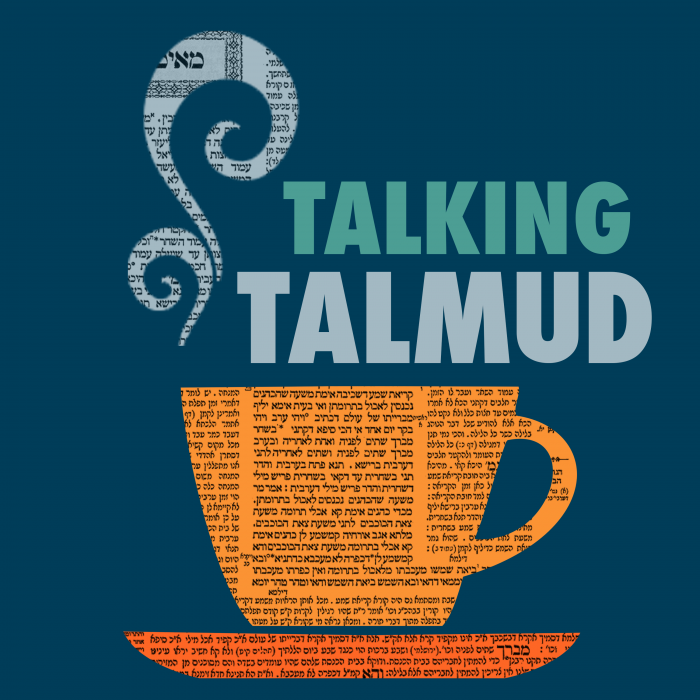Nedarim 71
מַתְנִי׳ נָדְרָה וְהִיא אֲרוּסָה. נִתְגָּרְשָׁה בּוֹ בַּיּוֹם, נִתְאָרְסָה בּוֹ בַּיּוֹם, אֲפִילּוּ לְמֵאָה — אָבִיהָ וּבַעְלָהּ הָאַחֲרוֹן מְפִירִין נְדָרֶיהָ. זֶה הַכְּלָל: כֹּל שֶׁלֹּא יָצְאָה לִרְשׁוּת עַצְמָהּ שָׁעָה אַחַת — אָבִיהָ וּבַעְלָהּ הָאַחֲרוֹן מְפִירִין נְדָרֶיהָ.
MISHNA: If she took a vow as a betrothed woman and then was divorced on the same day, and she was again betrothed on the same day to another man, or even to one hundred men, one after the other, on a single day, her father and her last husband nullify her vows. This is the principle: With regard to any young woman who has not left her father’s jurisdiction and entered into her own jurisdiction for at least one moment, through full marriage or reaching majority, her father and her final husband nullify her vows.
גְּמָ׳ מְנָלַן דְּאָרוּס אַחֲרוֹן מֵיפֵר נְדָרִים שֶׁנִּרְאוּ לְאָרוּס רִאשׁוֹן? אָמַר שְׁמוּאֵל, אָמַר קְרָא: ״וְאִם הָיוֹ תִהְיֶה לְאִישׁ וּנְדָרֶיהָ עָלֶיהָ״. נְדָרִים שֶׁהָיוּ עָלֶיהָ כְּבָר. דִּלְמָא הָנֵי מִילֵּי שֶׁלֹּא נִרְאוּ לְאָרוּס רִאשׁוֹן, אֲבָל נְדָרִים שֶׁנִּרְאוּ לְאָרוּס רִאשׁוֹן — לָא מָצֵי מֵיפַר אָרוּס אַחֲרוֹן!
GEMARA: From where do we derive that her final betrothed can nullify her vows that were disclosed to the first betrothed? Shmuel said that the verse states: “And if she be to a husband and her vows are upon her…and he nullifies her vow” (Numbers 30:7–9), indicating that he can nullify vows that were upon her already. The Gemara asks: Perhaps this statement applies only to vows that were not discerned by the first betrothed, but vows that were discerned by the first betrothed, the final betrothed cannot nullify.
״עָלֶיהָ״ קְרָא יַתִּירָא הוּא.
The Gemara answers: The phrase “upon her” is a superfluous part of the verse. One can derive from it that all her vows, including those of which an earlier betrothed had been aware, can be nullified by the final betrothed.
תַּנְיָא כְּווֹתֵיהּ דִּשְׁמוּאֵל: נַעֲרָה הַמְאוֹרָסָה — אָבִיהָ וּבַעְלָהּ מְפִירִין נְדָרֶיהָ, כֵּיצַד? שָׁמַע אָבִיהָ וְהֵפֵר לָהּ, וְלֹא הִסְפִּיק הַבַּעַל לִשְׁמוֹעַ עַד שֶׁמֵּת, וְנִתְאָרְסָה בּוֹ בַּיּוֹם, וַאֲפִילּוּ מֵאָה פְּעָמִים — אָבִיהָ וּבַעְלָהּ הָאַחֲרוֹן מְפִירִין נְדָרֶיהָ. שָׁמַע בַּעְלָהּ וְהֵפֵר לָהּ, וְלֹא הִסְפִּיק הָאָב לִשְׁמוֹעַ עַד שֶׁמֵּת הַבַּעַל — חוֹזֵר הָאָב וּמֵפֵר חֶלְקוֹ שֶׁל בַּעַל.
It is taught in a baraita in accordance with the opinion of Shmuel: With regard to a betrothed young woman, her father and her husband together nullify her vows. How so? If her father heard and nullified the vow for her, and the husband did not manage to hear it before he died, and she was betrothed on the same day to another man, or even one hundred times on the same day, her father and her final husband nullify her vows. If her husband heard and nullified the vow for her, and the father did not manage to hear it before the husband died, the father may go back and nullify the husband’s portion.
אָמַר רַבִּי נָתָן: הֵן הֵן דִּבְרֵי בֵּית שַׁמַּאי. אֲבָל בֵּית הִלֵּל אוֹמְרִים: אֵין יָכוֹל לְהָפֵר. בְּמַאי פְּלִיגִי?
Rabbi Natan said: This is the statement of Beit Shammai, that each of them nullifies half of the betrothed young woman’s vow. However, Beit Hillel say that the father cannot nullify the vow on his own. The Gemara asks: About what do Beit Shammai and Beit Hillel disagree?
בֵּית שַׁמַּאי סָבְרִי: נְדָרִים נָמֵי שֶׁרָאוּי לָאָרוּס, נִתְרוֹקְנָה רְשׁוּת לָאָב, וּמִיגָּז גָּיֵיז. בֵּית הִלֵּל סָבְרִי: אָבִיהָ וּבַעְלָהּ אַחֲרוֹן מְפִירִין נְדָרֶיהָ, וְלָא מִיגָּז גָּיֵיז.
The Gemara answers: Beit Shammai hold: Even with regard to vows that were disclosed to the betrothed, in the event of his death, his authority reverts to the father. In addition, when the father or husband of a young woman nullifies her vow, he severs his portion of it, enabling the father to nullify her vow on his own after the death of the betrothed. Beit Hillel hold that her father and her final husband together nullify her vows, and he who nullifies her vow does not sever it, but rather weakens its force. Even if the first betrothed was aware of the vow before his death, the father can nullify it in conjunction with another betrothed. This ruling is in accordance with the ruling of Shmuel that her final betrothed can nullify even those vows that she took while betrothed to the first man.
אִיבַּעְיָא לְהוּ: גֵּירוּשִׁין כִּשְׁתִיקָה דָּמְיָא, אוֹ כַּהֲקָמָה דָּמְיָא?
§ A dilemma was raised before the Sages: Is a husband’s divorce of his wife after she took a vow considered like silence, or is it considered like ratification of the vow?
לְמַאי נָפְקָא מִינַּהּ? כְּגוֹן שֶׁנָּדְרָה וְשָׁמַע בַּעְלָהּ וְגֵרְשָׁהּ, וְאַהְדְּרַהּ בְּיוֹמֵיהּ. אִי אָמַר מָר כִּשְׁתִיקָה דָּמֵי, מָצֵי מֵיפַר לַהּ. וְאִי אָמַר מָר כַּהֲקָמָה דָּמֵי, לָא מָצֵי מֵיפַר לַהּ.
The Gemara asks: What is the difference between the two possibilities? In any case, he did not nullify her vow before the divorce, and once he has divorced her he can no longer do so. The Gemara answers: There is a difference in a case where she took a vow, and her husband heard the vow, and divorced her, and he remarried her on the same day. If the Master says that divorce is like silence, the husband can now nullify the vow for her, since it is the same day. But if the Master says that divorce is like ratification, he cannot nullify the vow for her, as he has ratified it by divorcing her.























